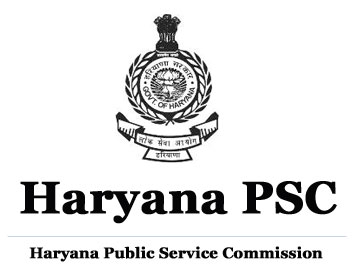(Syllabus) Haryana PSC: Works Manager and Store Purchase Officer
(Syllabus) Haryana PSC: Works Manager and Store Purchase Officer
MECHANICAL ENGINEERING
1. THERMODYNAMICS
Basic concepts, Open and Closed systems. Heat, work and termperature, First, Second and Zeroth law of thermodynamics and their applications, Entropy, Availability, Irreversibility. Carnot, Otto, Diesel and Dual cycles, Properties of steam, Vapour power cycles like Rankine, modified Rankine and Reheat cycle, Regenerative cycle.
2. HEAT TRANSFER
Basics of heat transfer, Steady state one dimensional heat conduction, Composite slab and Equivalent Resistance. Convection and radiation, Head dissipation from extended surfaces, Heat exchanger, Boiling and condensation, Boilers, its mountings and accessories.
3. THERMAL AND POWER PLANT ENGINEERING
Introduction to S.I. and C.I. Engines, performance parameters, Gas turbine-open and closed cycle, Steam Nozzle, Steam turbine, velocity diagram. Layout and working principles of thermal, hydraulic, gas and nuclear power plants. Wind power Plants, Solar power plants and other unconventional sources of power. Power plant economics.
4. REFRIGERATION AND AIR CONDITIONING
Basics of refrigeration, Refrigeration Cycle, Vapour compression and Vapour absorption cycle, Properties of important Refrigerants, Psychrometry, Psychrometric process, Application of Air conditioning, Human comfort.
5. AUTOMOBILE ENGINEERING
Transmission System: Clutch, Gear-box, Propeller Shaft, Differential, Brakes, Braking system, Steering system, Air pollution by Automobile Engines and its controls, Suspension system, Aerodynamic design of vehicle body, various safety features, Fuel System.
6. FLUID MECHANICS AND MACHINERY
Basic definitions and fluid properties, Continuity equation, Bernoulli’s equation, Flow through pipes, Laminar and Turbulent flow, Vortex motion, Application of momentum equation, Boundary layer and its control, Measurement of flow by Venturimeter, Orifice meter and Pilot tube, Dimensional analysis. Pelton, Francis and Kaplan turbine, their construction, performance and characteristics, Axial, Centrifugal and Reciprocating Compressors and pumps, Cavitation in pumps, Selection of Pumps and Turbines.
7. STRENGTH OF MATERIALS
Simple stress and strain, Hooke’s law, Bending moment and Shear force diagram, Torsion of shafts, thin-walled pressure vessels, Elastic and Plastic deformations, Bending of beams, Columns, Fatigue and fracture, Theories of failure, Engineering materials. Structure and properties of common engineering materials. Heat treatment of steels.
8. THEORY OF MACHINE
Kinematics, Quadratic chain and slider-crank mechanisms and their inversions, Power transmission-belt rope and chain, Gear Drives, Primary and Secondary Balancing, Free and Forced Vibration, Flywheel, Cams, Brakes and dynamometers, Governors, Gyroscope, Various types of bearings.
9. MACHINE DESIGN
Design of machine elements subjected to direct stress. Design of members subjected to bending, torsion like beam, coil and laminated spring. Design of shaft, coupling, gear, thick and thin cylinder.
10. PRODUCTION ENGINEERING
Foundry: Patterns and their allowances, moulding sand and its properties, moulding and casting methods. Welding: types, equipment and applications. Metal forming: rolling forging, extrusion and drawing. Metal cutting: Principles, machine tools and cutting tools, tool wear and tool life, Jigs and Fixtures, Economics of machining. Measurement: Standards of measurements, limits, fits and tolerances, linear and angular measurements. Unconventional machining methods.
11. INDUSTRIAL ENGINEERING AND OPERATION RESEARCH
Principles of management, Plant layout, Production planning and control, Work-Study, Inventory control ABC analysis, EOQ model. Linear programming: Simplex methods, Assignment and Transportation model, Single server queuing model, Concept of CPM and PERT, Statistical quality control and charts, Forecasting, Scheduling., Break-Even analysis.
Click Here for Official Syllabus
Courtesy: HPSC



